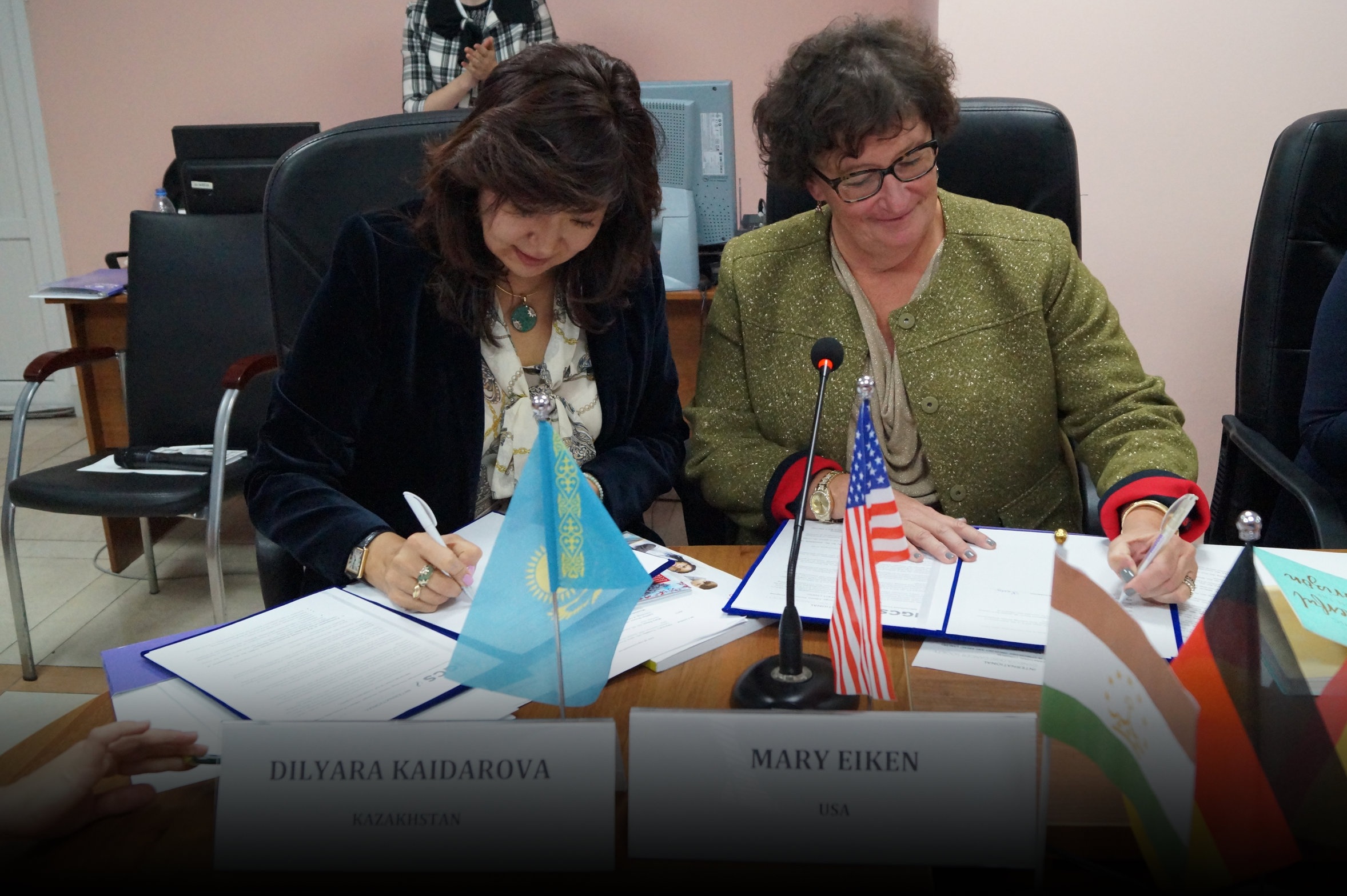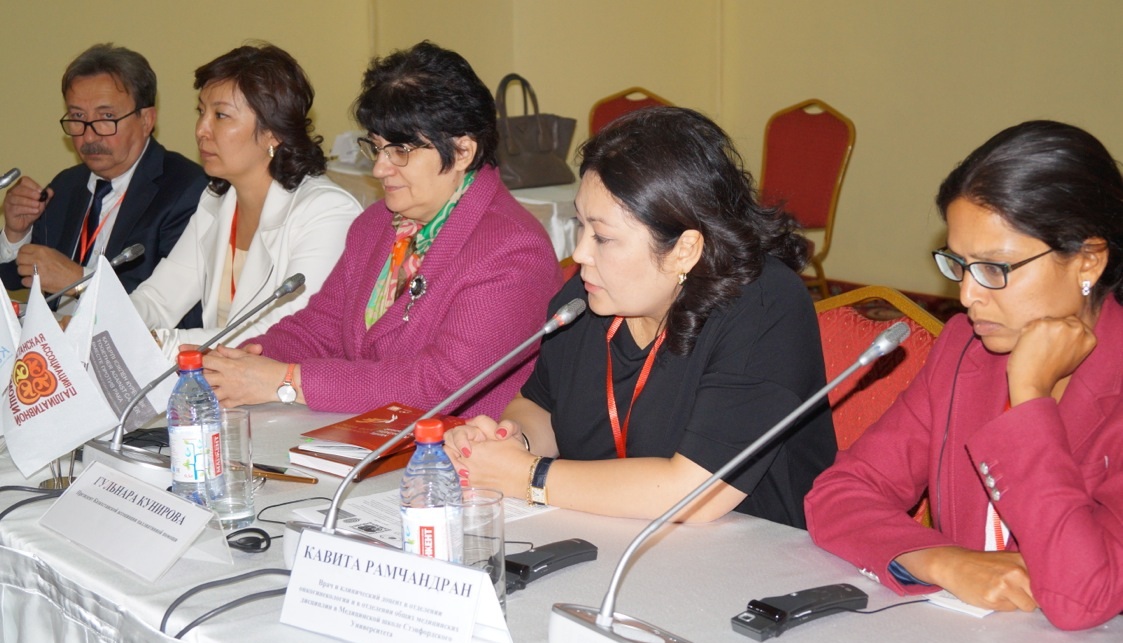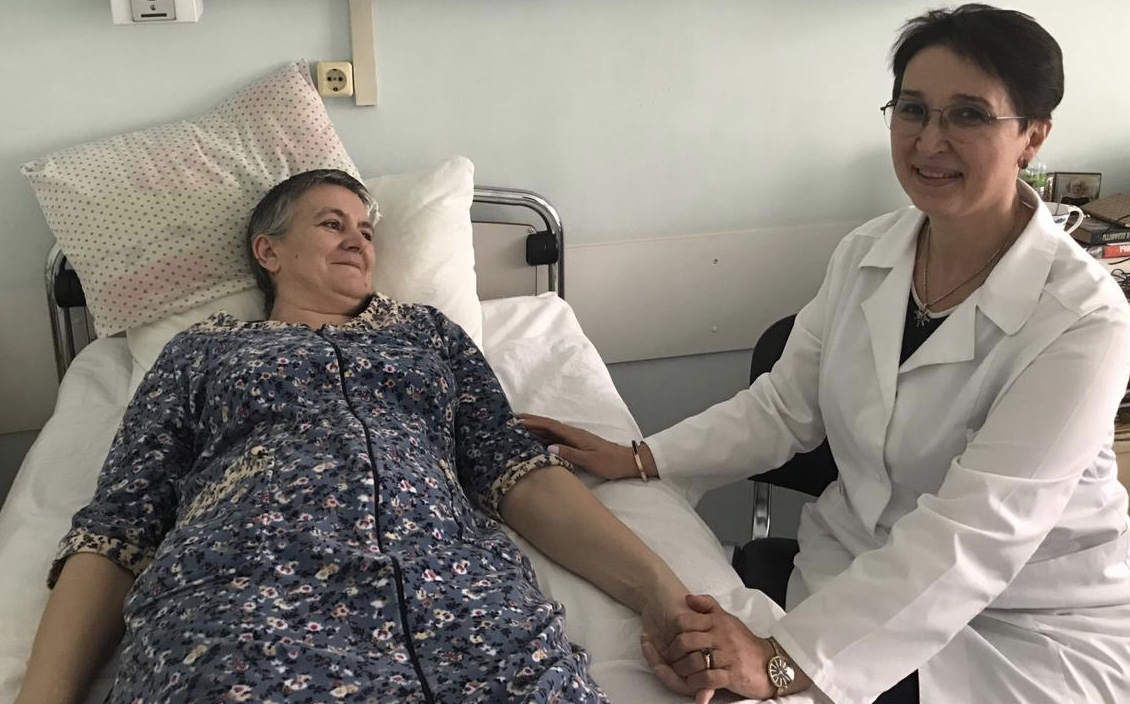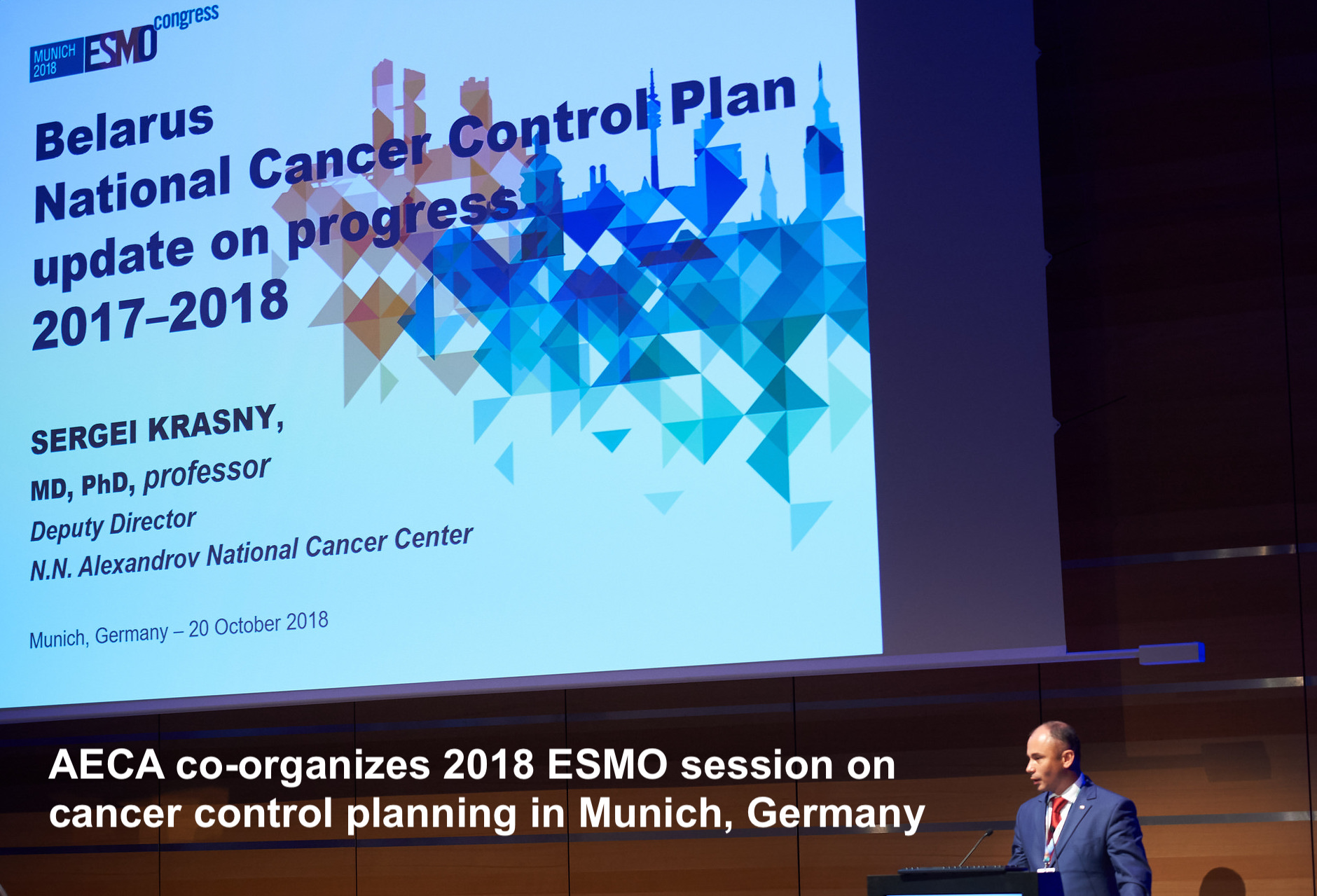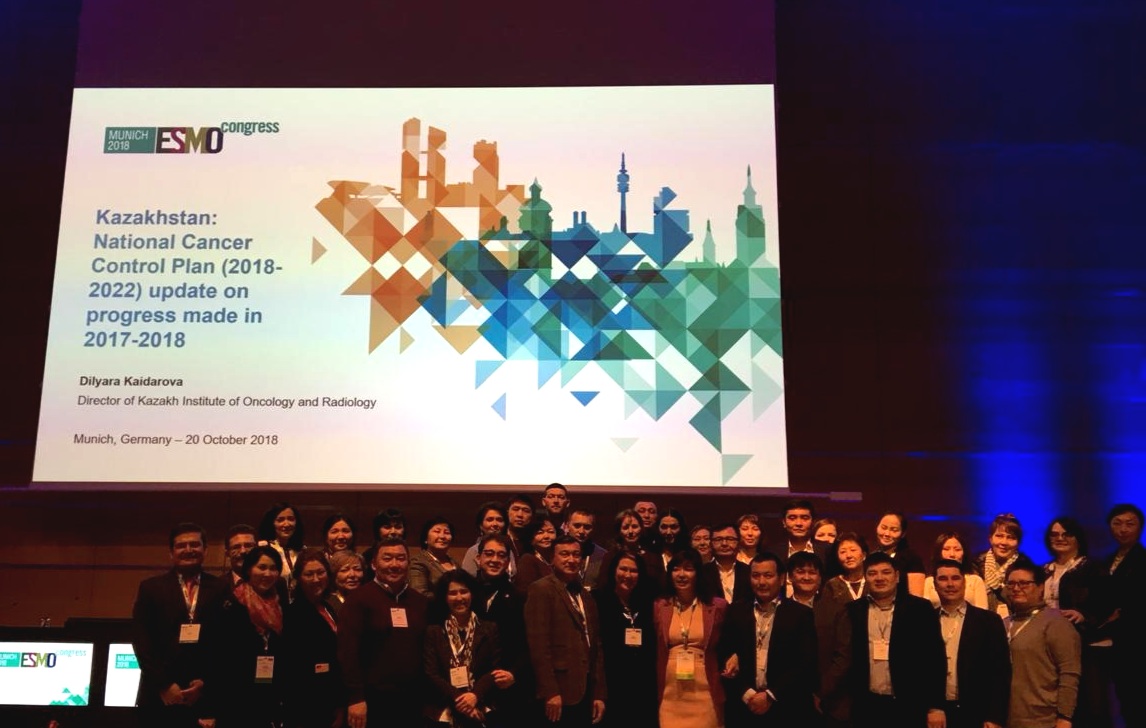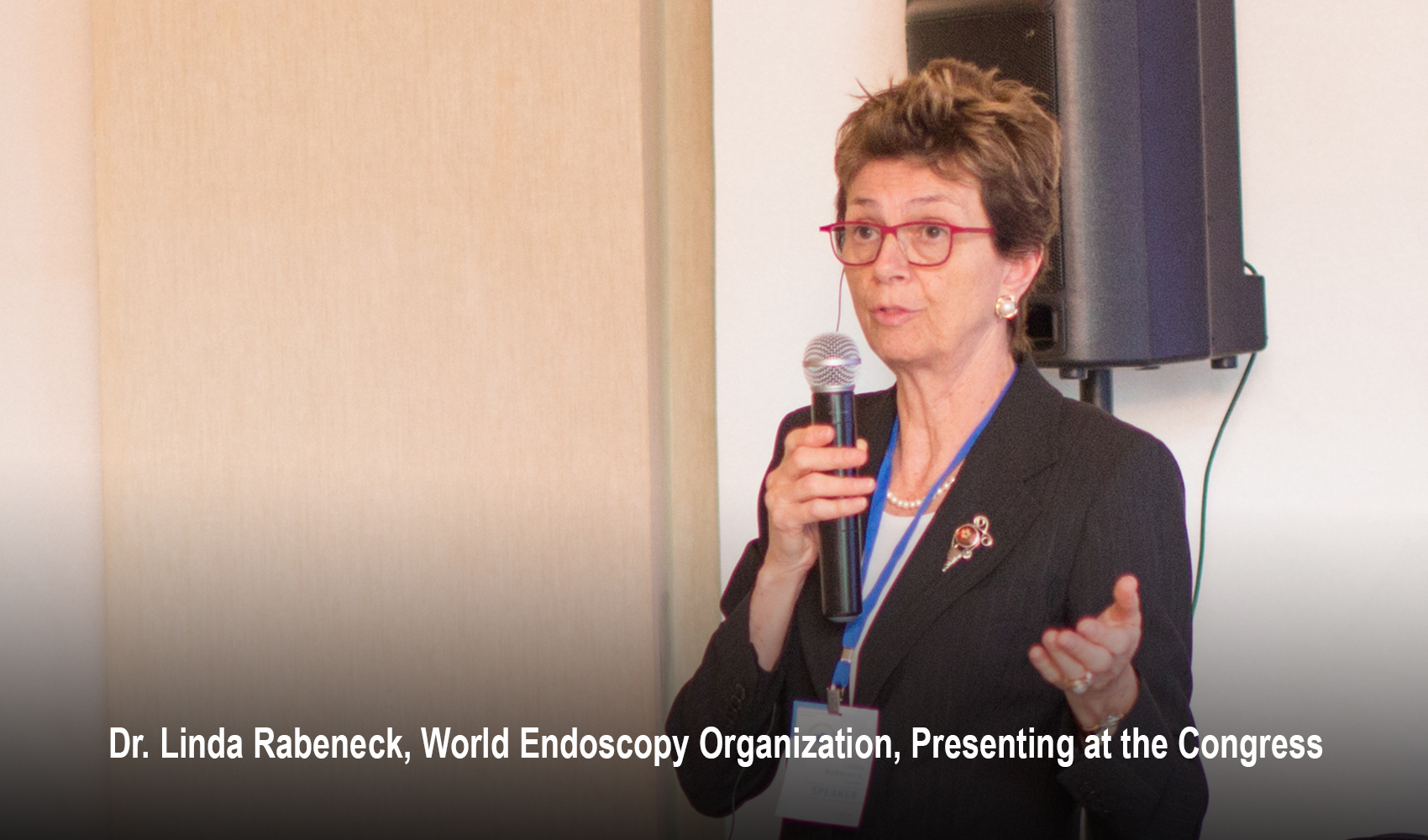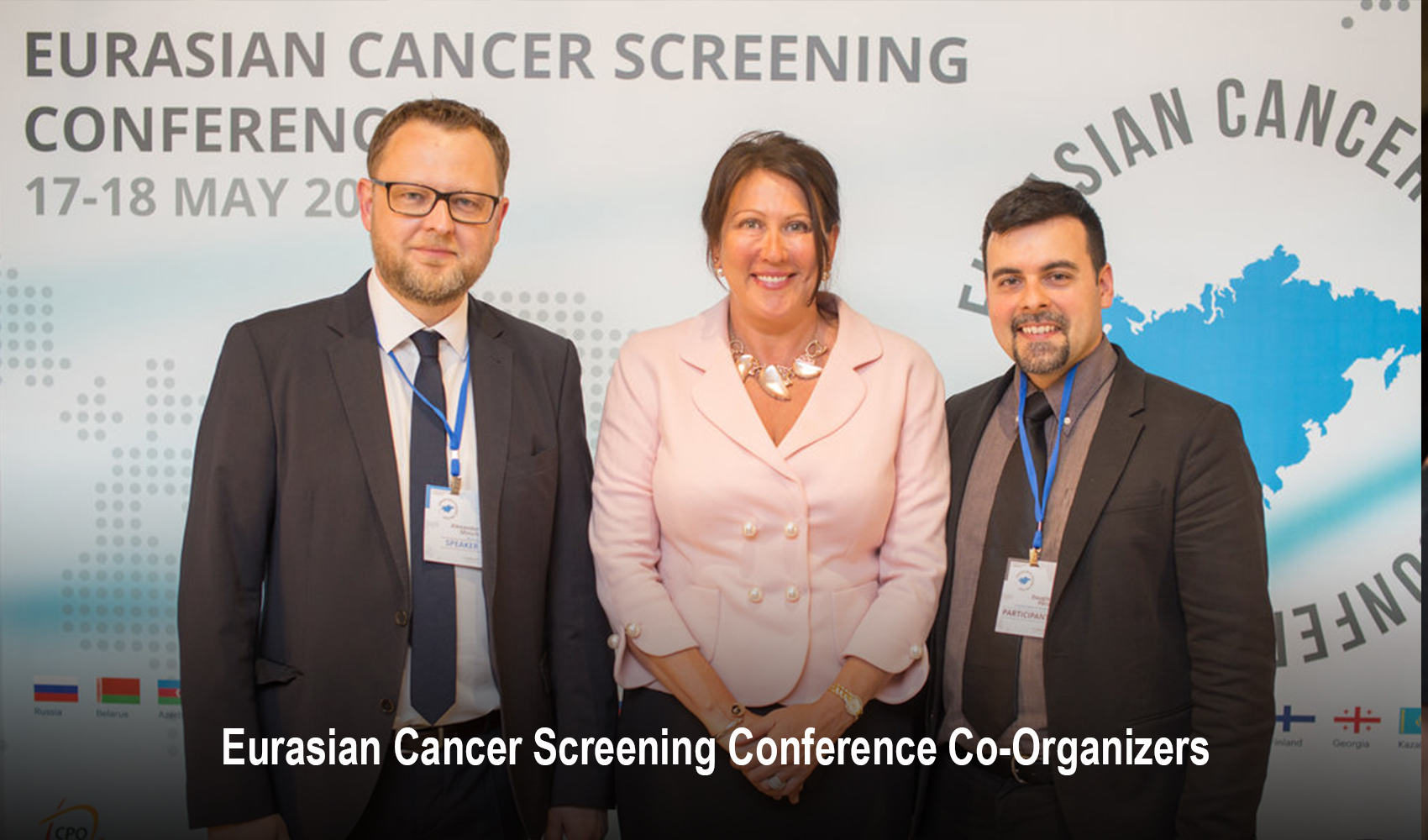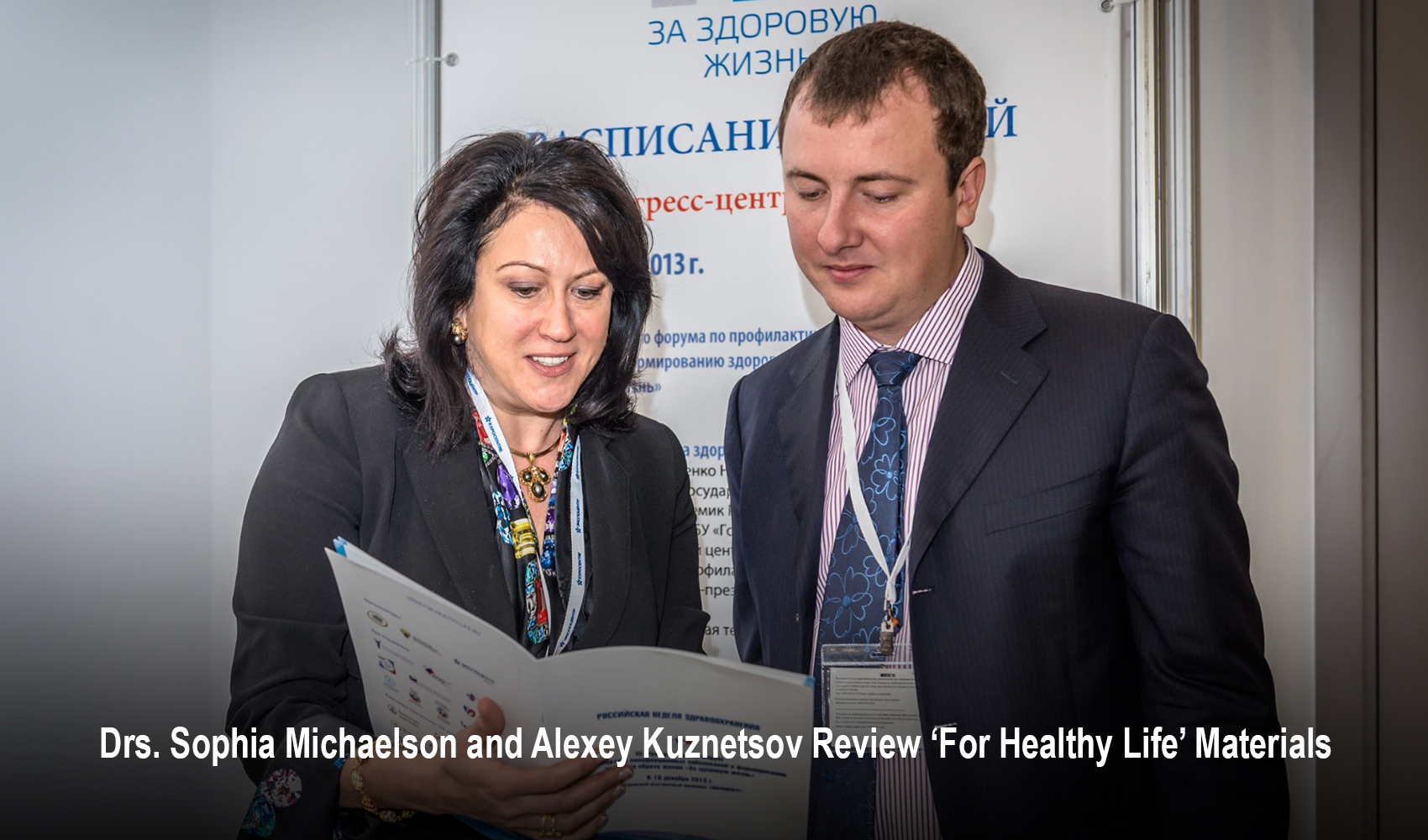Translating Research into Policy and Programs
AECA, together with international partners, led cancer control activities in Eurasia to provide guidance on existing practices to inform policy and strengthen research capacity, stimulate partnerships, and contribute to successful implementation of cancer control plans. Over the years, AECA’s active engagement in Eurasia has and continues to ensure that research results are translated into policies and programs that help all people live longer and healthier lives.
Eurasian Cervical Cancer Task Force
To contribute to WHO’s initiative for the elimination of cervical cancer worldwide, AECA is facilitating the establishment of a regional task force and securing the expansion of the platform for implementation of the initiative. AECA will leverage the participation of key stakeholders, including international organizations, Ministry of Health representatives from Eurasia, and high-level decision makers, to join the Eurasian Cervical Cancer Task Force, while bringing the cervical cancer elimination program to the top of the priority list for the region and securing program participation from surrounding nations.
Palliative Care
International experts joined Round Table to discuss legislation for opioid availability in Kazakhstan, 2017
AECA engaged with international stakeholders, including the Worldwide Hospice Palliative Care Alliance (WHPCA), the European Society for Medical Oncology (ESMO), the U.S. Pain and Policy Studies Group (PPSG), WHO EURO, NCI-CGH, and others to encourage legislative and regulatory change to improve palliative care and advance the development of palliative care programs throughout Eurasian countries. Policies discussed in AECA-coordinated palliative care meetings have been widely adopted throughout the Eurasian region.
AECA contributes to the development of palliative care legislation which ultimately improves the quality of care for patients, 2019
AECA, jointly with U.S. and European experts, are closely monitoring this ongoing progress, as insights may serve as a framework for mechanisms for delivery of care and knowledge exchange within limited resource areas. Through the engagement, stakeholders also fostered a better understanding of palliative care’s impact on health care delivery.
National Cancer Control Planning (NCCP)
Eurasia NCCP Session Development for ESMO. AECA contributes to the ESMO Global Task Force for Cancer Control and since 2017, has partnered with NCI and the ESMO Global Policy Committee to implement an ESMO Annual Meeting session dedicated to reviewing the progress of national cancer control plans in Eurasia and to evaluate the impact on cancer research, prevention, and control.
Commonwealth of Independent States (CIS) NCCPs. Through recent U.S. government engagement of AECA in cancer control, evidence dissemination, and health diplomacy outreach to Central Asia, AECA continues to be involved in an advisory capacity for the development of NCCPs throughout the region. AECA strives to ensure adequate resources are allocated for programmatic success and that further collaboration leads to the implementation of national guidelines.
Cancer Screening
In cooperation with WHO, IARC, U.S. NCI and leading international experts in cancer screening, AECA organized the first Eurasian Cancer Screening Conference. Conference resolutions were drafted and adapted by participating Eurasian governmental representatives. These new guidelines allowed several nations to reduce the unnecessary allocation of resources towards ineffective screening methods, directly affecting policies regarding screening of cervical, colon, breast, and prostate cancers. The adoption of these guidelines proved particularly important in low- and middle-income countries where even modest enhancements in cancer screening protocols greatly improved detection and treatment outcomes.
NonCommunicable Diseases (NCDs)
Building on the success of tobacco and cancer control efforts, AECA was invited to develop the U.S.-Russian For Healthy Life program, which focused NCD prevention and management. The program served as a unique opportunity for academic, industry and private sector leaders to address NCDs through public-private partnership. The development of progressive NCD guidelines through multiple For Healthy Life Forum resolutions became the foundation for several legislative actions passed by governments of many Eurasian countries, focused on tobacco and obesity control, active lifestyle recommendations, and drug and alcohol consumption.
